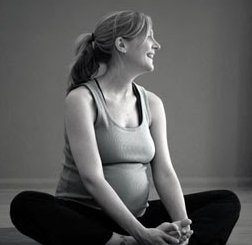Early Stage of Labor
The Early Stage of Labor is the longest of the labor stages. As we already mentioned, the majority of your labor will likely be in this stage. Typically ranging from 8-15 hours in duration, you can expect each contraction to be 30-55 seconds long with a 5-20 minute rest between contractions.
At the start of this phase you will feel very excited. This is it! You are an in labor, or you think you are. Sometimes it is hard to differentiate between normal Braxton hicks contractions and the early phase of labor….
Braxton Hicks (warm-up) Contractions versus Early Stage of Labor
The best way to tell if you are in the early stage of labor as opposed to having Braxton hicks contractions is to:
- Eat
- Drink
- Walk
- Shower
- Nap
If changing your position, eating or drinking causes contractions to stop you know that you were having Braxton Hicks contractions and are not in 1st stage labor…yet!
What the Early Stage of Labor Feels Like
Once you start having regular contractions, regardless of movement or eating, you will feel very excited. If you find yourself wanting to stay busy between contractions - for example - anxiously cleaning things or if you feel restless, wanting to walk, you are in early labor.

Physically there are several things that often happen at this stage other than contractions. You may have several bowel movements, you may feel like you need to urinate frequently and you may notice bloody mucus either in the toilet or on your underwear.
“Bloody show” is when your mucous plug or blood tinged mucous discharge comes out. The mucus plug blocks your cervix and prevents bacteria and other foreign matter from entering your uterus when you are pregnant. When your cervix starts dilating, the mucous plug usually falls out or dissolves.
Contractions are generally 10 minutes apart and last less than 60 seconds during the first few hours. You will likely feel pressure or a cramping feeling – like period cramps. It generally feels better to walk around and keep busy. You will often start noticing changes in your body at this time. Your pelvis may feel less stable. You may lose track of time. All of this is normal and a great indication that our hormones are doing their job!
What you should do in the Early Stage of Labor
Since early first stage labor can last for hours, it is important to keep busy and don’t pay too much attention to it. You need to conserve your physical and emotional energy for later in the process.
During the daytime, eat little meals often, following your healthy pregnancy diet. Drink lots of filtered water. Get up and walk for a few minutes every hour so that your baby can get into a good position for birth.

When you are sitting, sit upright, don’t recline. Sitting upright will discourage your baby from turning posterior (sunny-side up). For the easiest delivery, you want your baby to be facing your spinal cord, not facing forward (sunny side up).
Do activities that take your mind off of labor like watching a funny movie or reading a book. During the night, lie down on your side with pillows and try to get some rest - if at all possible.
Do your pregnancy exercises. Squatting will help your pelvis open and allow baby to descend and engage. Cat Stretch will help take pressure off your back if you have a backache.
Remember, sometimes the early stage of labor can stop for a while. You can have contractions every seven minutes for five hours and then have labor stop altogether overnight before resuming again in the morning. This is natural. Everybody and every labor is different. Don’t get discouraged.
Your body and your baby are getting prepared for birth at the perfect pace. Rest, eat and continue with your life until things get more intense and you are in active labor.
How your Labor Assistant (Husband or Doula) Can Help
Your labor support (doula or husband) should remind you to walk for a few minutes every hour to help the inlet of your pelvis open. They should also work to keep you mellow and relaxed since adrenalin – both excitement and fear – can slow or stop labor.
They should also be sure to encourage you and remind you that this stage can go on for a while. This is a great time for them to give you a massage, take you for a walk or help you distract yourself. This is also a great time for them to rest with you.
Quick Links for More Information
Birth Plan Template
Early Signs of Labor
Stages of Labor and Delivery
Active Labor
Transition
Pushing Stage
Delivery of the Placenta












New! Facebook Comments
Tell us what you think!